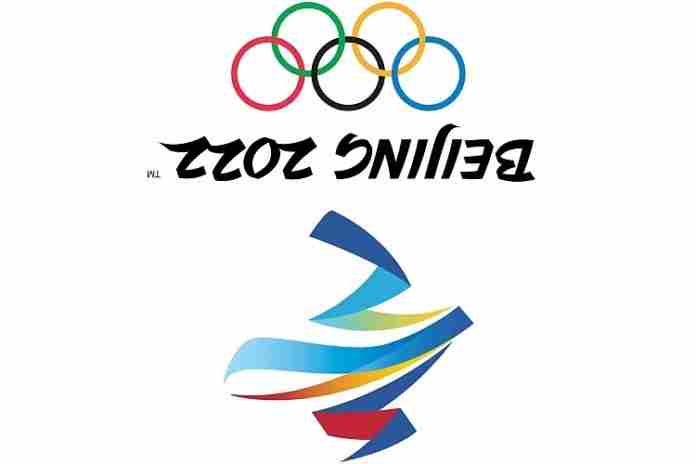A commentary: In a November 2020 report on trust in news media, 69% of Americans thought “news organizations being too dramatic or too sensational in order to attract more readers or viewers” was a major problem.
No kidding.
Enter the stories coming from Tuesday’s U.S. State Department briefing in Washington, D.C. led by a post from the CNBC business channel headlined “State Department says U.S. considering a joint boycott with allies of the 2022 Winter Olympics in Beijing.”
The story was rewritten six hours later, with a new headline: “U.S. State Department backs away from the idea of a Beijing Olympics boycott.”
There was a lot of damage caused in those six hours. Let’s see what happened :
● The original story quoted State Department spokesperson Ned Price from a comment at the end of his Tuesday briefing. Asked “You seemed to suggest on the [Beijing Winter] Olympics that the U.S. is in consultations with allies discussing whether to consider or plan some sort of joint boycott. Is that the case?”
Price answered: “Well, it is something that we certainly wish to discuss and that it is certainly something that we understand that a coordinated approach will be not only in our interests but also in the interests of our allies and partners. So this is one of the issues that is on the agenda both now and going forward, and when we have something to announce, we will be sure to do that.”
That’s the quote that went out and was picked up almost instantly around the world, including by this site. Seems clear and to the point, right?
● But the State Department publishes full transcripts of its briefings and last night, the transcript appeared. Price’s answer to the original question on the Beijing 2022 Winter Games creates a whole different context for his follow-up answer:
“QUESTION: With regard to participating in the Beijing Olympics, can you detail how the State Department has been or will be involved in the administration’s decision on that front?
“MR PRICE: Well, part of our review of those Olympics and our thinking will involve close consultations with partners and allies around the world. We have consistently said, when it comes to our concerns with the government in Beijing, including Beijing’s egregious human rights violations, its conduct of genocide in the case of Xinjiang, that what the United States does is meaningful, what the United States does will have impact, but everything we do that is – that brings along our allies and partners will have all the more influence with Beijing.
“And so that is why the Department of State, as part of our thinking on the Beijing Olympics, is engaging with partners, with allies to coordinate – coordinate closely on decisions and approaches to the government in Beijing. You saw an illustration of that only the other week when the United States, together with United Kingdom, together with Canada, together with the [European Union], enacted a set of sanctions against those responsible for some of the atrocities in Xinjiang. So clearly, we are coordinating on all of these issues of concern, and, of course, the Beijing Olympics is an area that we will continue to discuss.
“QUESTION: And when do you think those discussions will – specifically on the Olympics will be concluded with partners and allies?
“MR PRICE: Well, of course, this is – we’re talking about 2022 and we are still in April of 2021. So these games remain some time away. I wouldn’t want to put a timeframe on it, but these discussions are underway.
“QUESTION: And how complicated would U.S.-China diplomacy become if the U.S. decided to boycott the Olympics?
“MR PRICE: Again, I wouldn’t want to comment on a hypothetical. We know that when it comes to our engagement with the government in Beijing, the – principally, it is a relationship predicated on competition. There are also adversarial aspects of that relationship. There are also some cooperative aspects of those relationships – of that relationship. Really, all three of those were on display [at the March meetings] in Anchorage, both in the session that was public as well as in the discussions that were behind closed doors.
“But with our approach to Beijing, we will continue to be guided by two things and two things only. Those are our interests, including the interests we share with allies and partners around the world, and our values. And those are the values we share with our allies and many of our closest partners around the world.”
Price never said the word “boycott,” only the reporters did. Price said “we are coordinating [with allies] on all of these issues of concern, and, of course, the Beijing Olympics is an area that we will continue to discuss.”
That’s the context in which his ending comment of “it is something that we certainly wish to discuss” was made and is far away from any current discussion of a possible joint boycott of the Beijing 2022 Games.
But Japan’s Kyodo News Service saw the reports in the U.S. media echo chamber and posted a story datelined Washington, D.C. that began:
“The U.S. State Department said Tuesday a potential boycott of the 2022 Beijing Winter Olympics is among issues Washington hopes to discuss with its allies and partners, amid growing criticism of China’s human rights record.”
In my opinion, the story from Price’s briefing misrepresented Price’s position-as-stated and used his standalone, final comment to give a false impression.
So, it was no surprise that the Price got after this quickly and CNBC (among others) changed its headline to “U.S. State Department backs away from the idea of a Beijing Olympics boycott” and quoted a State Department statement (apparently from Price), “Our position on the 2022 Olympics has not changed. We have not discussed and are not discussing any joint boycott with allies and partners.”
But CNBC doubled down on its original post adding (as did others):
“Department spokesman Ned Price had initially suggested during a press briefing earlier on Tuesday that a boycott of the Olympic Games was among the possibilities for addressing China’s human rights abuses.”
In my view, Price did no such thing and that CNBC and others used his comments out of context to say so does not make it true.
The response from China was quick and angry. The Associated Press reported Chinese Foreign Ministry spokesman Zhao Lijian as promising a “robust Chinese response” to a potential boycott and
“The politicization of sports will damage the spirit of the Olympic Charter and the interests of athletes from all countries. The international community including the U.S. Olympic Committee will not accept it.”
White House Press Secretary Jen Psaki had to state the unchanged U.S. policy position again on Wednesday:
“Our position on the 2022 Olympics has not changed. We have not discussed and are not discussing any joint boycott with allies and partners. We, of course, consult closely with allies and partners at all levels to define our common concerns and establish a shared approach, but there’s no discussion underway of a change in our plans regarding the Beijing Olympics from the United States’ point of view.”
The persecution of the Uyghurs in China’s Xinjiang province is a serious, horrific matter, and the continued focus by national media on a 1980-style U.S. boycott of the 2022 Olympic Winter Games is not. There are good ways to make the point to the Chinese government, the Chinese public and to the rest of the world that the situation must change; I made a near-costless proposal in February.
But then, this site is also among the untrustworthy crowd of news media in the U.S., so who would want my advice, anyway?
Rich Perelman
Editor
You can receive our exclusive TSX Report by e-mail by clicking here. You can also refer a friend by clicking here, and can donate here to keep this site going.
For our 649-event International Sports Calendar for 2021 and beyond, by date and by sport, click here!


























